Singapore in 2024: Key changes and events to look out for
Sign up now: Get ST's newsletters delivered to your inbox
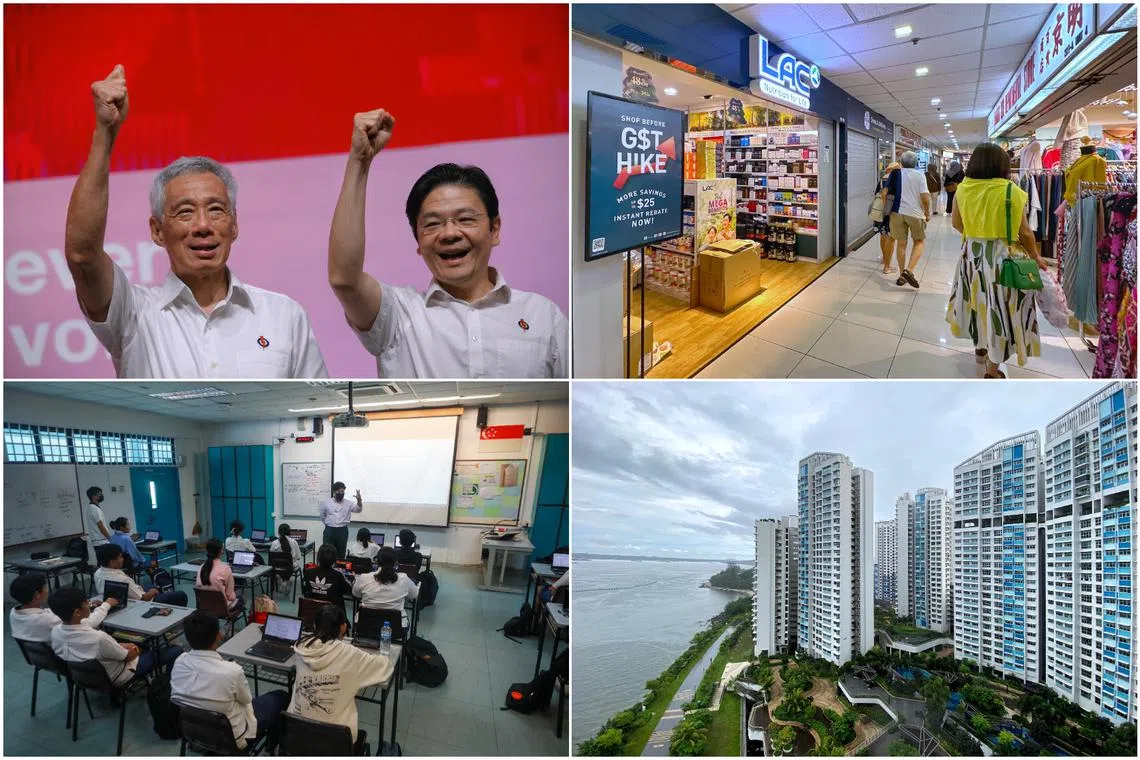
ST looks at some key events and changes of the new year.
PHOTOS: ST FILE, DESMOND WEE, CHONG JUN LIANG
From the leadership transition to the GST hike, The Straits Times looks at some key events and changes of the new year.
Leadership handover
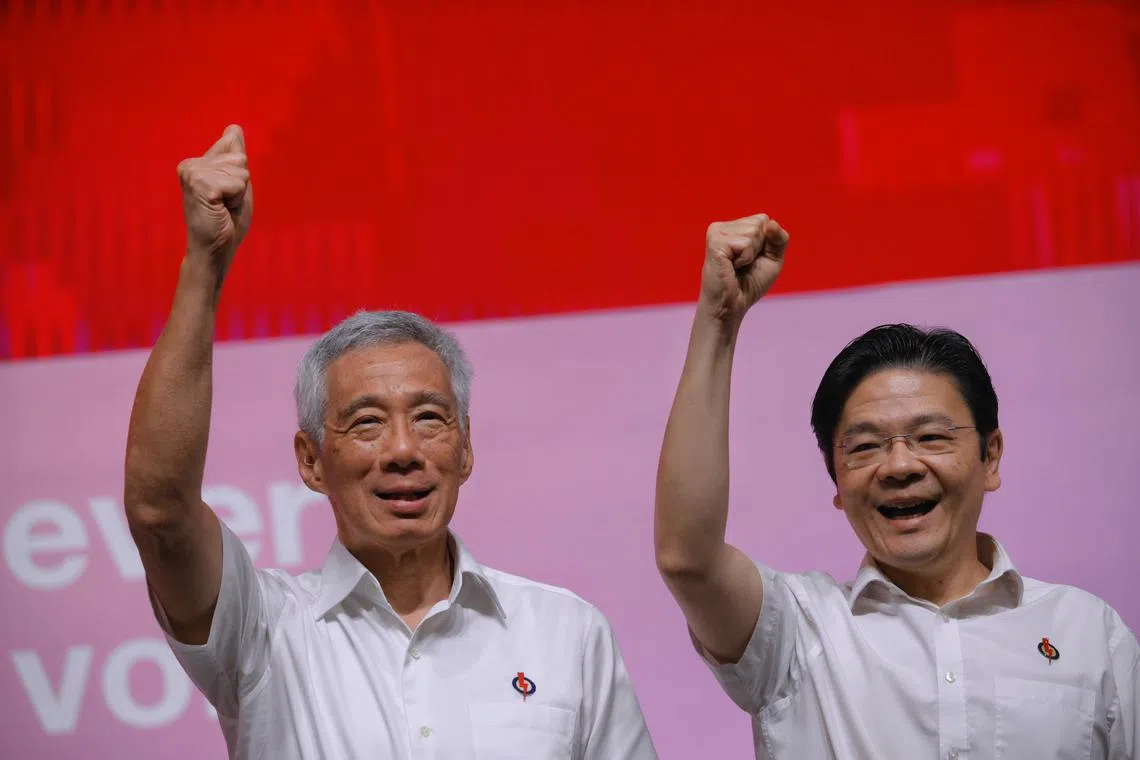
PM Lee Hsien Loong has announced plans to hand over the leadership to DPM Lawrence Wong by the PAP’s 70th birthday in November 2024.
PHOTO: ST FILE
Prime Minister Lee Hsien Loong previously announced plans to hand over the leadership to Deputy Prime Minister Lawrence Wong
Mr Wong will lead the PAP in the next general election. He was picked by his peers to be the leader of the fourth-generation team
The general election has to be held by November 2025, but political observers say it could be called in 2024.
GST hike and help
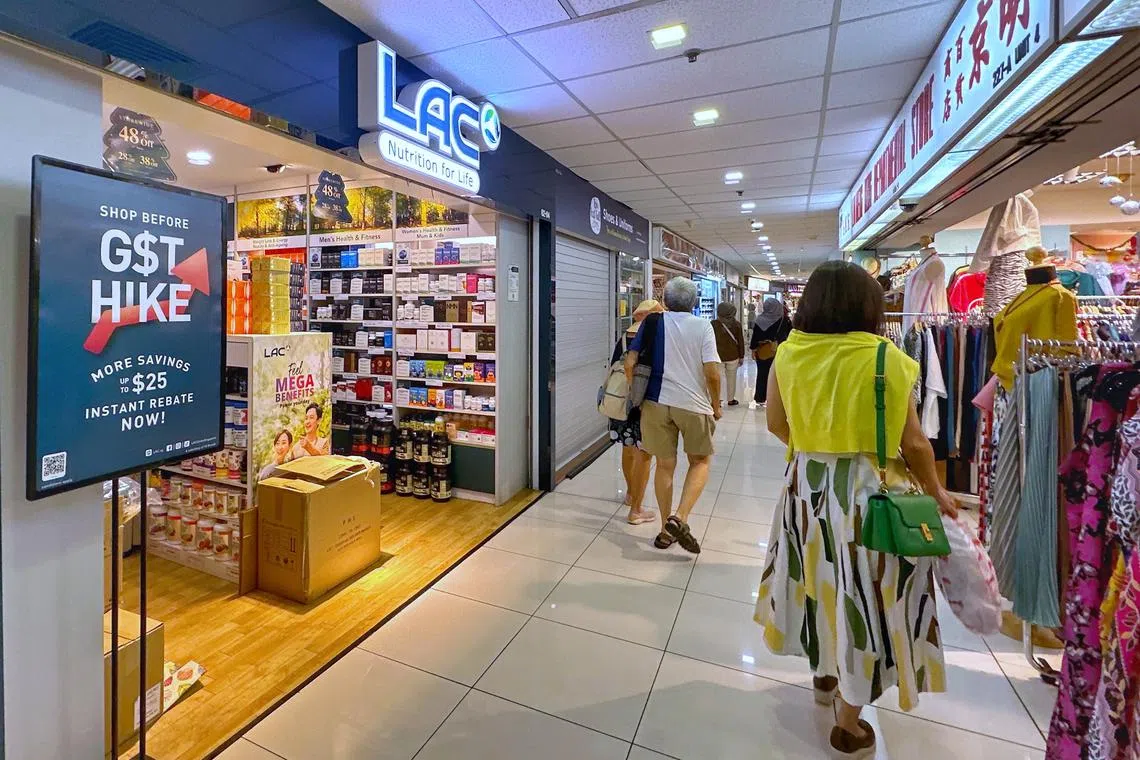
The Government announced measures in 2023 to help Singaporeans cope with the GST hike.
ST PHOTO: DESMOND WEE
From Jan 1, Singapore’s goods and services tax (GST) has been raised to 9 per cent.
The Government announced measures such as Assurance Package payouts and GST vouchers in 2023 to help Singaporeans cope with the tax hike
The Assurance Package payouts range from $200 to $800 a year for all Singaporeans above 21. GST vouchers in 2024 will include cash payouts, MediSave top-ups and rebates to offset utility bills for eligible Singaporeans.
Gas, electricity and water to cost more
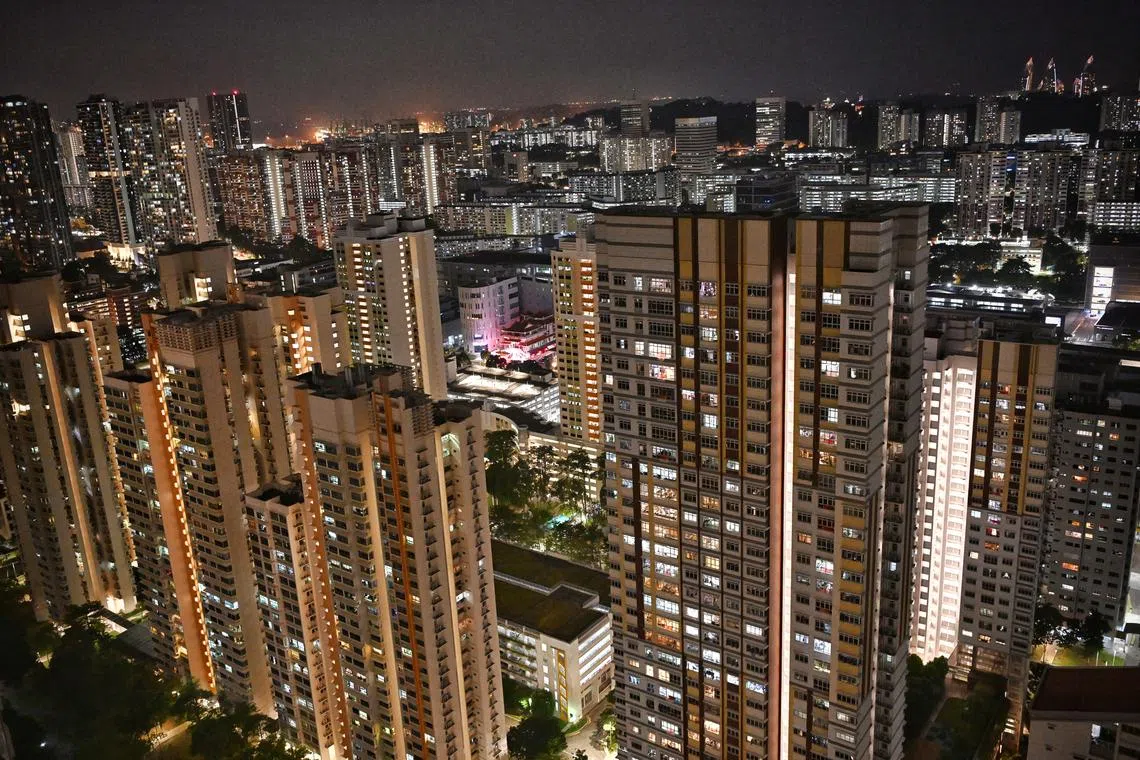
Singaporeans can expect to pay more for their utilities in 2024.
PHOTO: ST FILE
Due to the GST hike and jump in carbon taxes from $5 to $25 per tonne of emissions in 2024, Singaporeans can expect to pay more for their utilities.
From Jan 1 to March 31, households supplied by SP Group will see a 5 per cent increase in electricity tariffs
Town gas tariffs have also increased by about 4 per cent to 25.23 cents per kWh, up from 24.21 cents per kWh, according to City Energy, the producer and retailer of piped gas.
Water prices will also go up in April
From January 2024 to December 2025, eligible Singaporean HDB households will receive an additional $20 per quarter in U-Save rebates
Extended paternity, infant-care leave
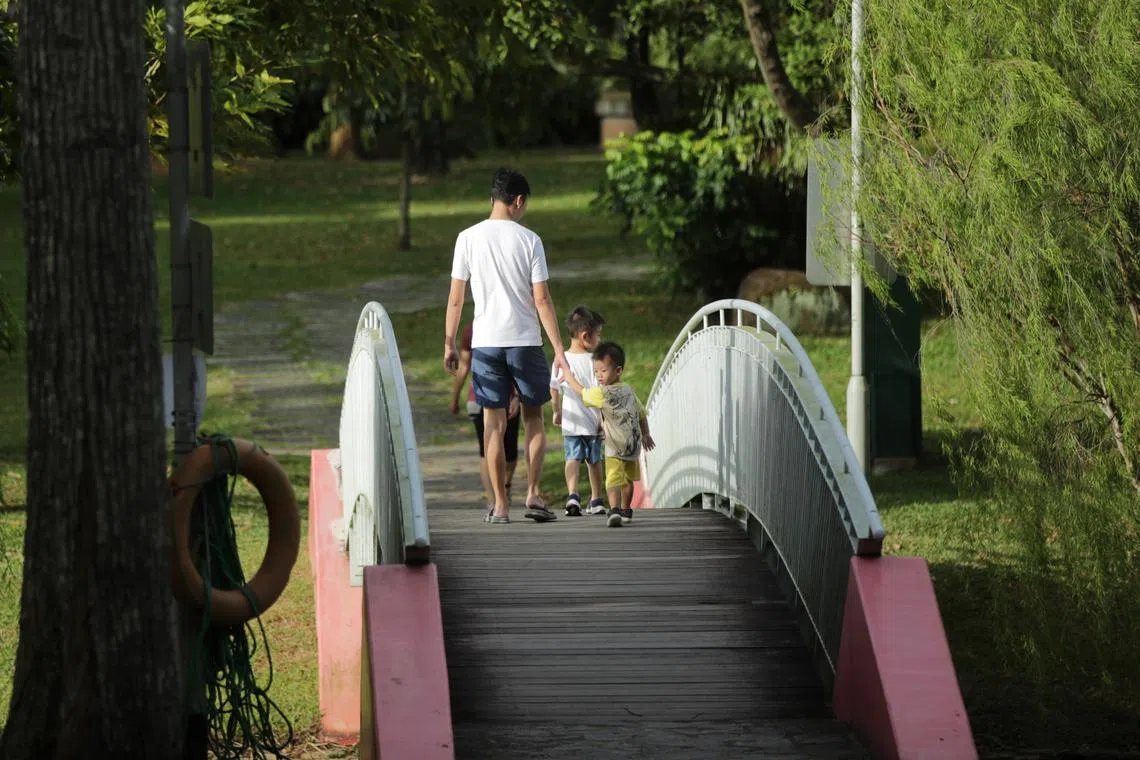
Government-paid paternity leave will be doubled to four weeks. Unpaid infant care leave for parents will also be doubled to 12 days.
ST PHOTO: GIN TAY
From Jan 1, fathers may have more time with their babies as government-paid paternity leave will be doubled to four weeks.
Employers can grant the additional two weeks of paternity leave on a voluntary basis, which will be reimbursed by the Government.
Under the new laws, the government-paid paternity benefit will similarly be doubled from the current 14 days of an eligible father’s total income to 28 days. Fathers who do not qualify for paternity leave because of their employment arrangements may instead be eligible for this benefit, which is a cash payment in lieu of paternity leave.
Each parent is now eligible for 12 days of unpaid infant care leave in the child’s first two years, up from the previous six days.
Full subject-based banding in schools
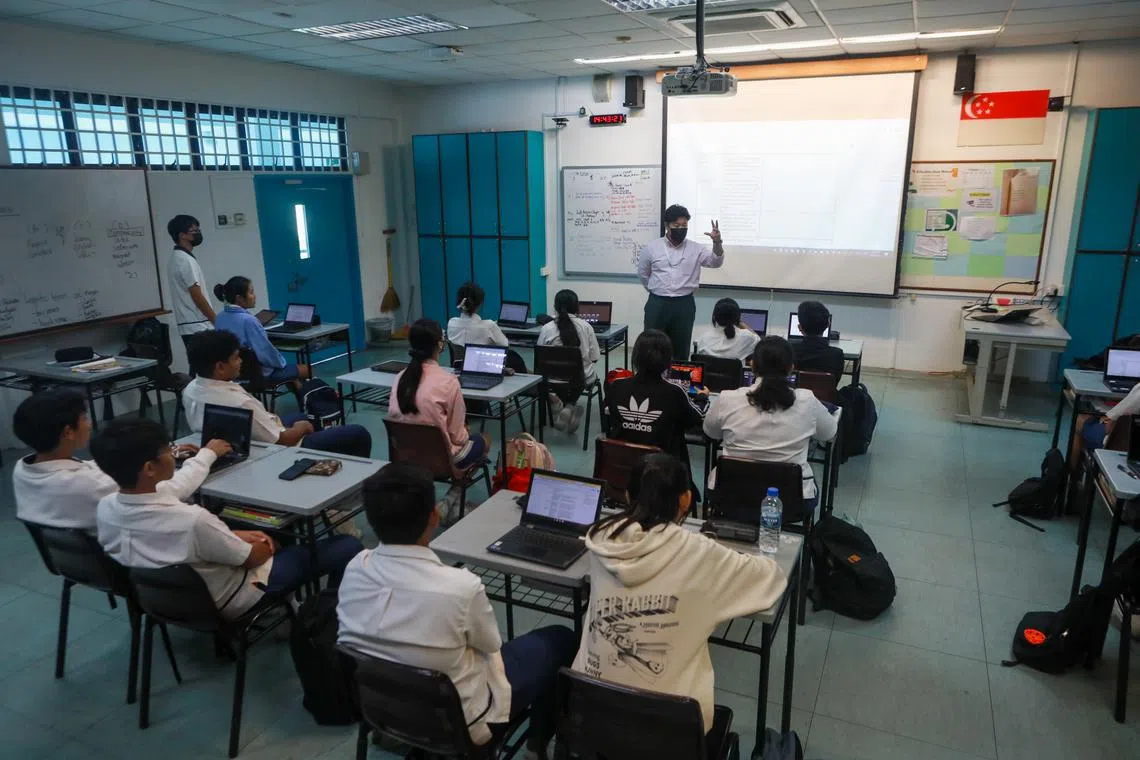
The full subject-based banding model allows students to learn subjects at different levels of difficulty.
PHOTO: ST FILE
Secondary schools will now follow a full subject-based banding model,
In 2019, the Ministry of Education announced that the existing Express, Normal (Academic) and Normal (Technical) streaming would be abolished
Students are admitted to secondary schools through three posting groups based on their results, and will take most of their subjects at the corresponding subject level, but may also be able to take subjects at a less or more demanding level.
This means that a student may take a subject at an easier level if he is not coping well, or challenge himself at a more difficult level if he is doing well, based on his results and his pace of learning.
Push for online safety

Social media platforms will have to submit online safety reports annually to be published on IMDA’s website.
PHOTO: ST FILE
In the second half of 2024, social media platforms like Facebook and TikTok will have to submit online safety reports annually
The report must include details on what steps the platforms have taken to mitigate Singapore users’ exposure to harmful content, how much and what types of harmful content users here encounter on the service, and what actions were taken on user reports.
These publicly released reports will help users make an informed choice on which platforms are best suited to provide a safe user experience.
Transport Minister S. Iswaran’s ongoing probe
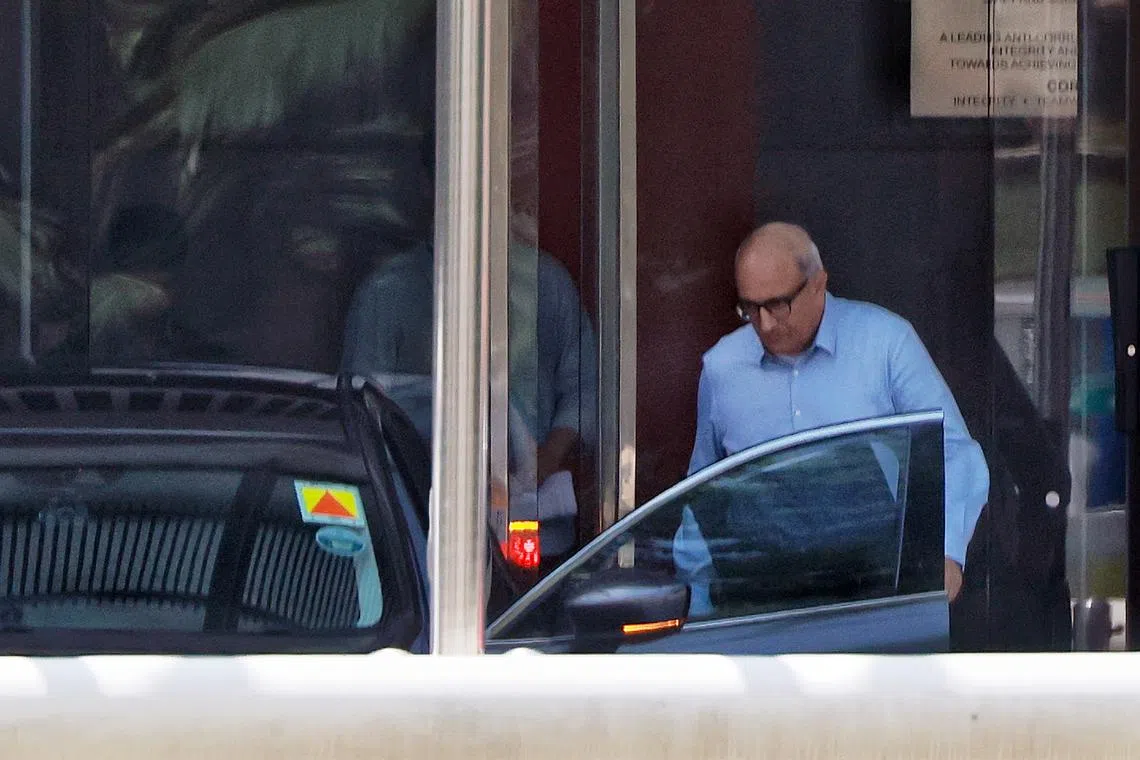
Transport Minister S. Iswaran leaving CPIB’s headquarters on July 21, 2023.
PHOTO: ST FILE
Transport Minister S. Iswaran is still on leave of absence from his ministerial and MP duties
CPIB said Mr Iswaran was assisting with an investigation, with no further information on the details of the probe. He was arrested on July 11, 2023, and subsequently released on bail.
In his absence, Senior Minister of State Chee Hong Tat is Acting Minister for Transport, and Mr Iswaran’s portfolio at the Ministry of Trade and Industry is being covered by other political office-holders.
Stage 4 of Thomson-East Coast Line
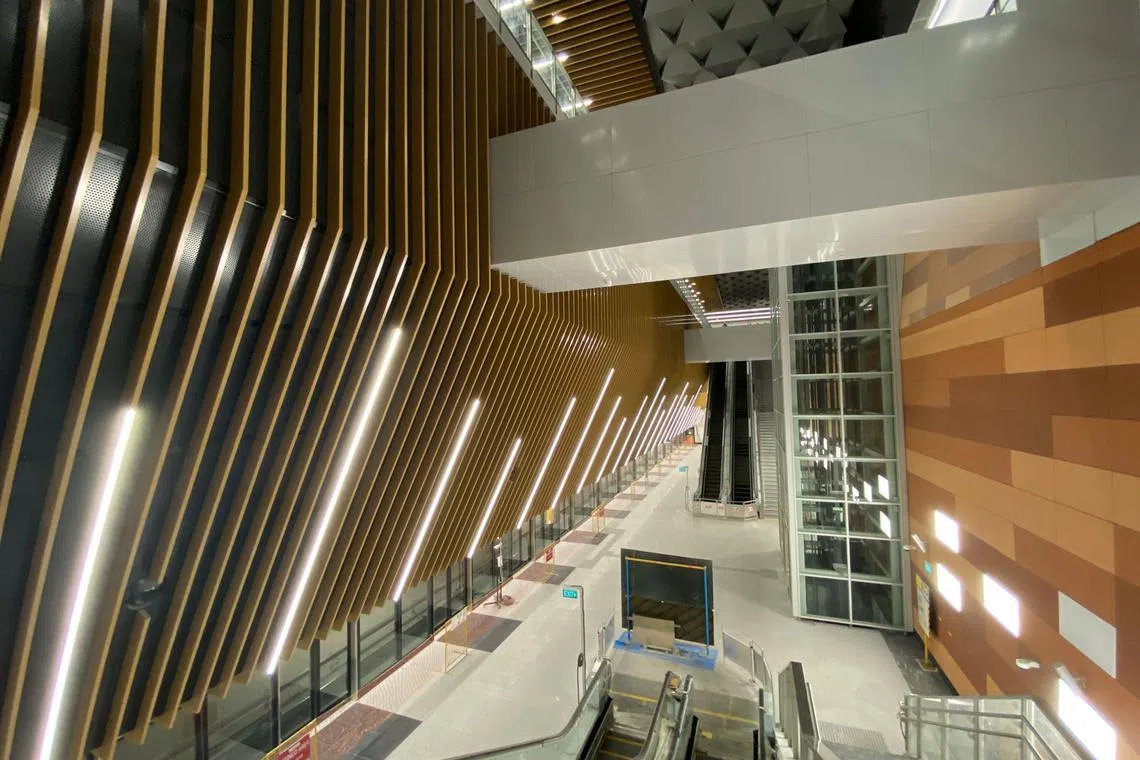
Katong Park MRT station, one of the seven stations on stage four of the Thomson-East Coast Line.
PHOTO: LTA
Work on seven stations along Stage 4 of the Thomson-East Coast Line has been substantially completed,
The Land Transport Authority (LTA) said in December 2023 that it is carrying out train testing on the line.
The seven stations are Tanjong Rhu, Katong Park, Tanjong Katong, Marine Parade, Marine Terrace, Siglap and Bayshore.
Two new trains for the Bukit Panjang LRT will arrive in 2024, following the first two of 19 new trains that arrived in 2022. They will be put into service after testing, and replace the first-generation trains that have been in service since 1999.
On the Sengkang-Punggol LRT line, 25 new two-car LRT trains will be delivered from 2024 to replace the existing ones.
The North East Line extension from Punggol station to Punggol Coast station will also open in 2024, and construction work on King Albert Park, Clementi and West Coast stations for the second phase of the Cross Island Line is expected to start in the first quarter.
Review of taxi, ride-hailing services

The review of taxi and ride-hailing services comes amid a rise in ridership.
PHOTO: ST FILE
The review of taxi and ride-hailing services,
This exercise, in which LTA will look into the point-to-point transport industry’s structure and regulatory framework, comes amid a rise in ridership.
On average, the number of daily trips by both street-hail and ride-hailing services rose by 18.6 per cent, from 517,000 in 2020 to 613,000 in July 2023.
The review will focus on three areas – improving the stability of the supply of taxis and ride-hailing services during late-night hours when there are ride shortages, ensuring that services can be provided with minimal disruptions and downtime, and to make sure services cater to the needs of commuter groups such as wheelchair users and families with young children.
New HDB estate classification
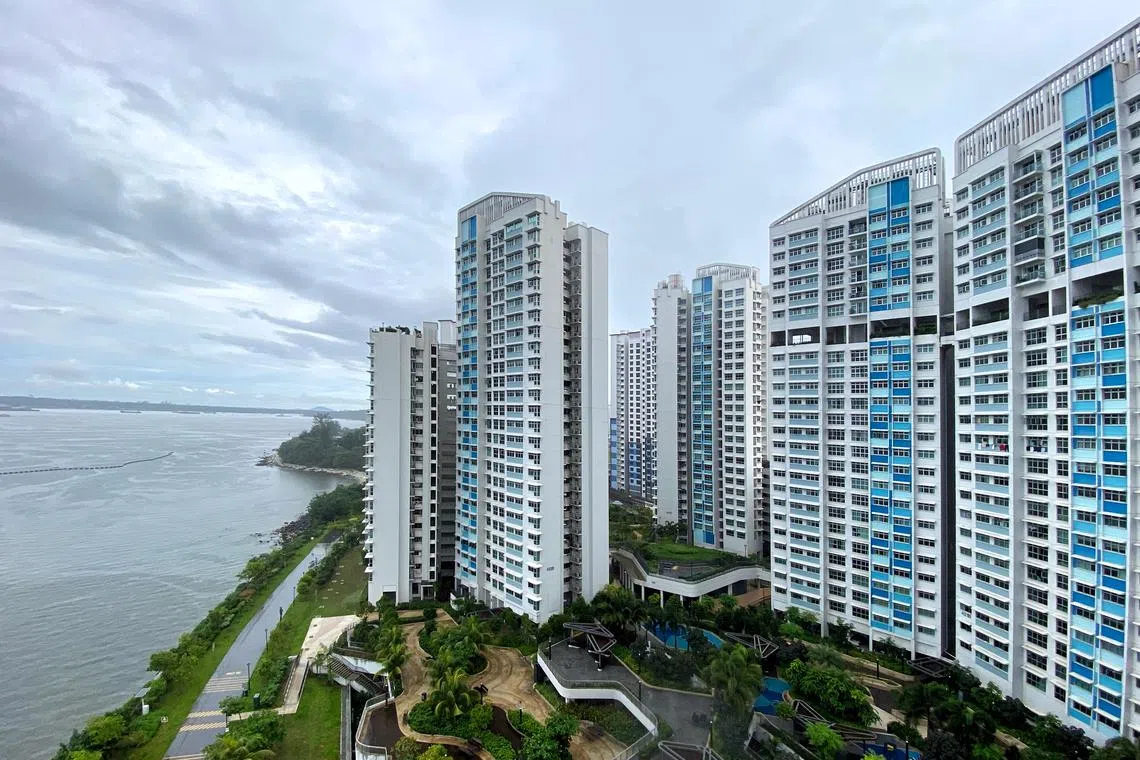
Instead of demarcating estates as mature and non-mature, new BTO flats will be categorised into Prime, Plus and Standard flats.
ST PHOTO: CHONG JUN LIANG
The current estate classification system for HDB flats will be overhauled from the second half of 2024.
Instead of demarcating estates as mature and non-mature, new Build-To-Order flats will be categorised into Prime, Plus and Standard flats,
PM Lee said the distinction between mature and non-mature estates has blurred over the years, as non-mature estates have become more built-up with better amenities and transport infrastructure.
The demarcation of towns as mature and non-mature was introduced in 1992, and was used by buyers to form a top-line impression of what to expect in terms of pricing and an area’s amenities.



